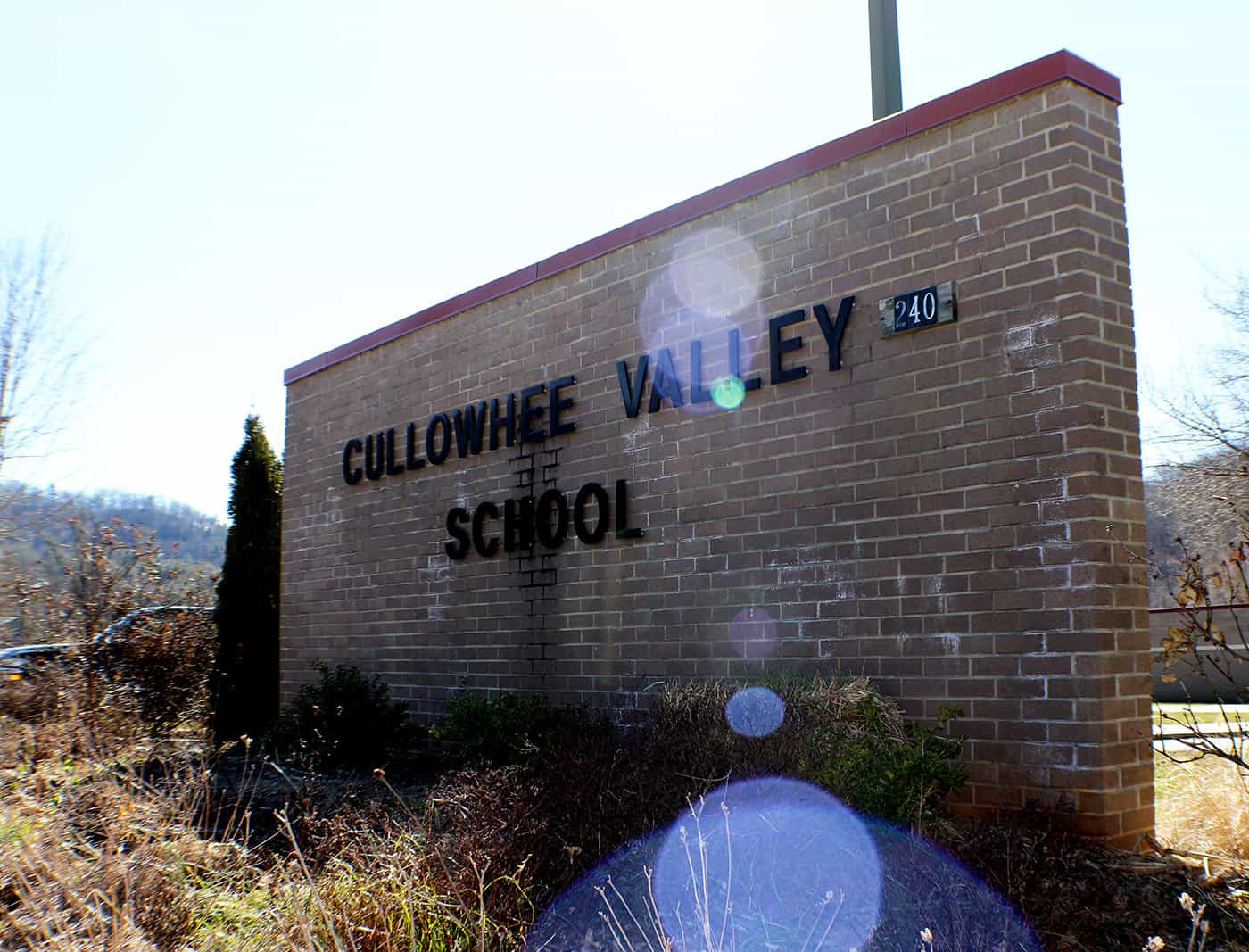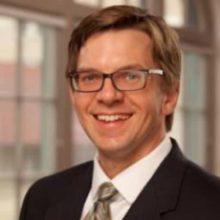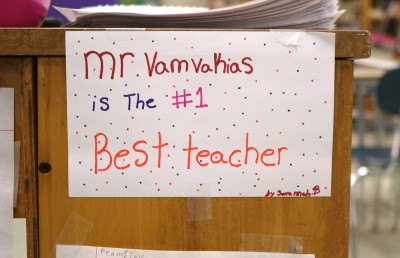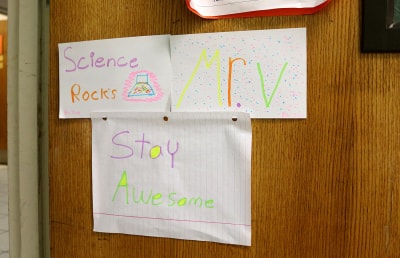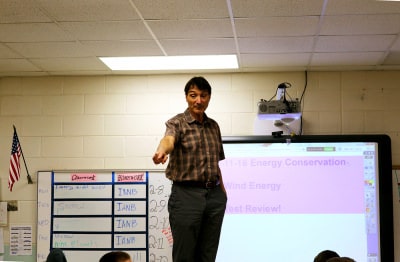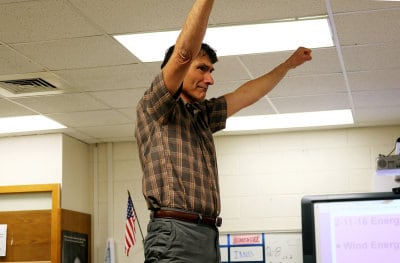Editor’s Note: The University of North Carolina Academic and University Programs Division releases its annual report this week. Great Teachers and School Leaders Matter surveys the work of the Division and UNC’s fifteen educator preparation programs that are focused on the University’s goal of preparing more, higher quality teachers and school leaders for North Carolina’s public schools. EdNC will be highlighting the report’s profiles of teachers, school leaders, programs, and partnerships from across the state as part of a nine-part series. The full report is available here.
The signs are everywhere. They aren’t immediately apparent at first, but once you see the first one, the others suddenly come into focus, scattered around the classroom.
There are the ones taped to the classroom door:
“Stay awesome.”
“Science rocks”
There are two on the teacher’s desk:
“Mr. V is the best teacher ever in history.”
“Mr. Vamvakias is the #1 best teacher.”
There’s the random one on the wall that’s been added to over time:
“You’re amazing and the best.”
“Best teacher ever!!!”
“Thank you for teaching us.”
And there’s even one scribbled in red marker in between the daily class schedule on the white board:
“Mr. V is the best science teacher ever.”
Jeff Vamvakias, or “Mr. V” as he is affectionately called by his students, is a second-year middle school science teacher at Cullowhee Valley School in the Jackson County Public Schools.
After spending just a few minutes in Mr. V’s classroom, it’s easy to understand why his students admire him. He brings to the class an enthusiasm that literally has him leaping from desk to desk, joking with students, handing out fist bumps for correct answers, and at one point jokingly calling his class to attention with a very serious demeanor.
“Everyone, let me have your attention. This is a serious matter,” says Vamvakias with deadpan humor to a class of energized middle schoolers who become suddenly still.
“If your wife makes a homemade lemon meringue pie and sends it with you to school, you should never eat it all before lunch,” says Vamvakias, clearly speaking from experience.
The class relaxes and laughs, and Mr. V goes on to explain in scientific detail how the consumption of too much sugar can actually increase appetite.
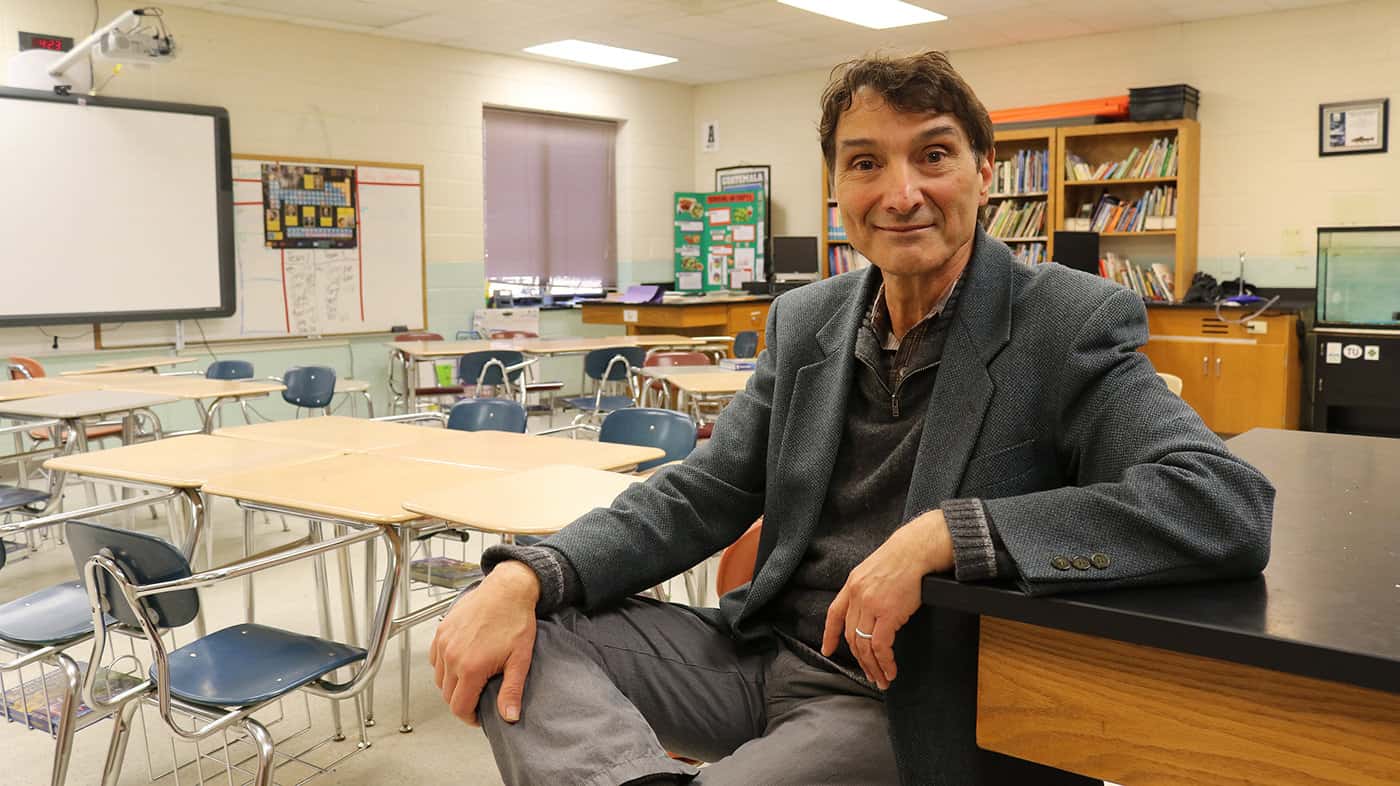
A participant in the NC New Teacher Support Program (NC NTSP), Vamvakias’ origin story, the path that brought him to Cullowhee Valley School and into the lives of the students in his class, is bookworthy, to say the least. He is a former marine. A former mountain climbing guide. A yoga teacher.
He created and taught a model environmental outdoor education program for deaf students in Texas. He has worked with farmers in Nicaragua. And he has pretty much surfed all the best spots around the world.
And that is only part of the story.
But his real life passion?
“Ever since I was a kid, I always wanted to be a public school teacher. It’s always been my dream,” says Vamvakias.
Though he was the first person in his family to go to college, had a master’s degree in one discipline, graduate work in another, and was currently pursuing a third, there was one problem.
“I never thought I was smart enough to do it,” says Vamvakias.
Video: What brought you to teaching?
https://youtu.be/8016noi8Cf0
The NC NTSP makes it possible for people like Vamvakias to pursue their dream of teaching by offering extra layers of support for teachers in their first three years of teaching, through individualized coaching and statewide convenings.
It gives teachers like Vamvakias the support they need to make the leap into teaching and nurtures them through the start of their new careers, the critical period when a teacher is most likely to leave the profession.
Participants in the program range from traditional education majors who just graduated with their degree to alternative entry teachers in their first year. The program also works in partnership with NC INSPIRE teachers who have had another career and are simultaneously pursuing a master’s in education and teaching at the same time.
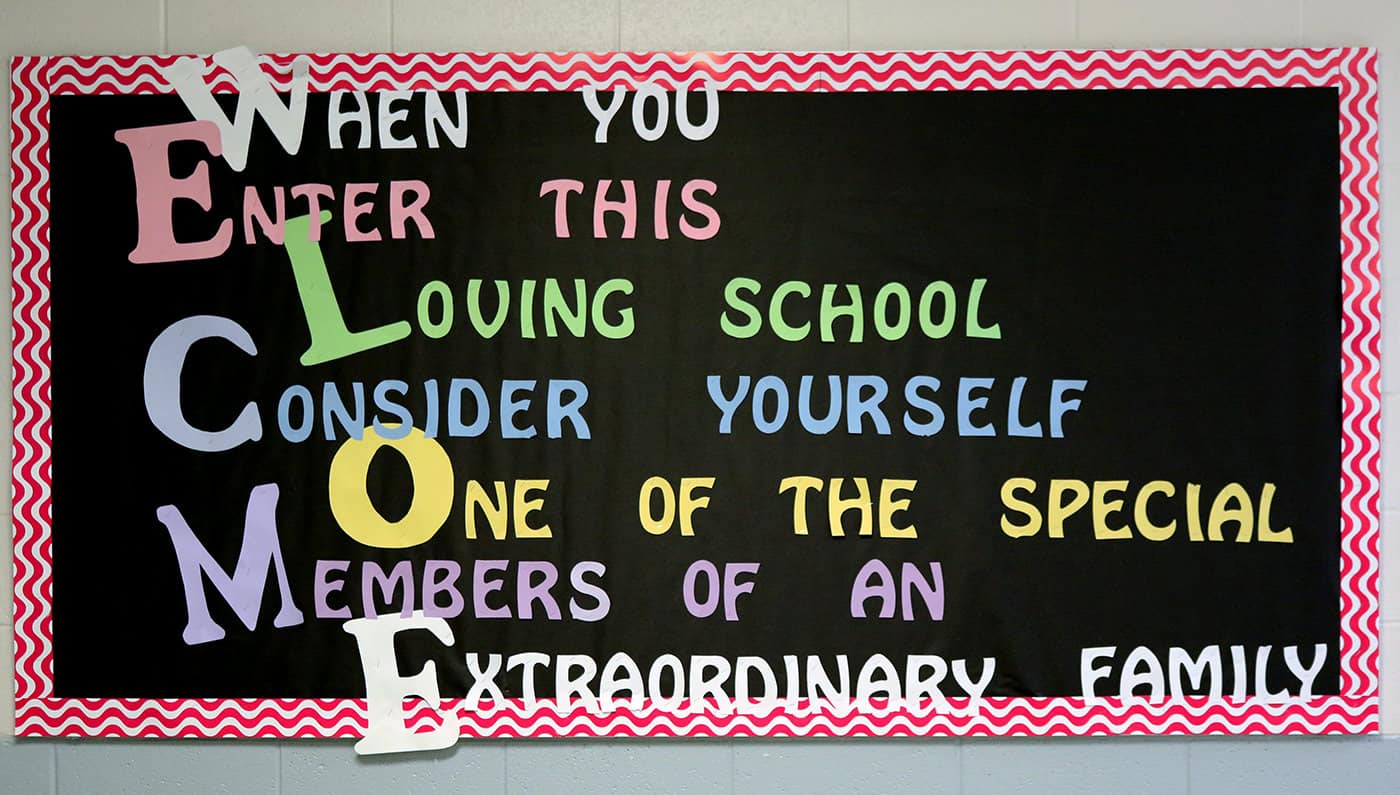
Tierney Fairchild is Vamvakias’ instructional coach, and it’s clear the two have a connection and a mutual respect. Fairchild, like the other coaches in the NC NTSP, is part sounding board, part counselor, part fixer. Her work covers a broad spectrum of issues and concerns weighing on the shoulders of new teachers.
“We do everything from giving a listening ear to pulling resources to help them enhance their curriculum. We lead professional development throughout the state to help them grow in their journey as teachers,” says Fairchild, who covers the Buncombe, Jackson, and Haywood County Schools as part of the NC NTSP and works directly with 28 other new teachers in addition to Vamvakias. “We’re a phone call away. If they’ve had a bad conference with a parent and they need some encouragement and some strategies to improve, we are there for them.”
“We are very flexible,” says Fairchild with a laugh.
And with Vamvakias, sometimes Fairchild’s support can take on a very literal meaning.
At one point in the day, Mr. V climbed onto a chair to make an announcement. When that didn’t get the full attention of the class, he stepped up onto a nearby desktop.
After making his announcement, Mr. V rewards the class’ attentiveness by telling them he is going to leap from one desk to another.
Fairchild happens to be in the class, and slight look of concern flashes across her face. She reaches to brace the desk Vamvakias is aiming for. It’s clear it’s not the first time she’s done this.
But there’s no need. With a mountain climber’s agility, Mr. V lands safely and soundly, throwing up his arms in victory as the class cheers.
“Tierney is amazing,” says Vamvakias about his NC NTSP coach. “She helps me with everything.”
“She has such a wonderful heart,” says Vamvakias. “She is just amazing and will bend over backwards to help me. She has made a huge difference.” Vamvakias describes Fairchild as his “go-to for everything.”
“Anything I need, she’s there.” says Vamvakias.
It’s clear Vamvakias loves being a teacher.
“Teachers change lives,” says Vamvakias. “I’m contributing to making the world a better place.”
Video: What do you think students get from a teacher like Jeff Vamakias?
https://youtu.be/3zqiNklXAV8
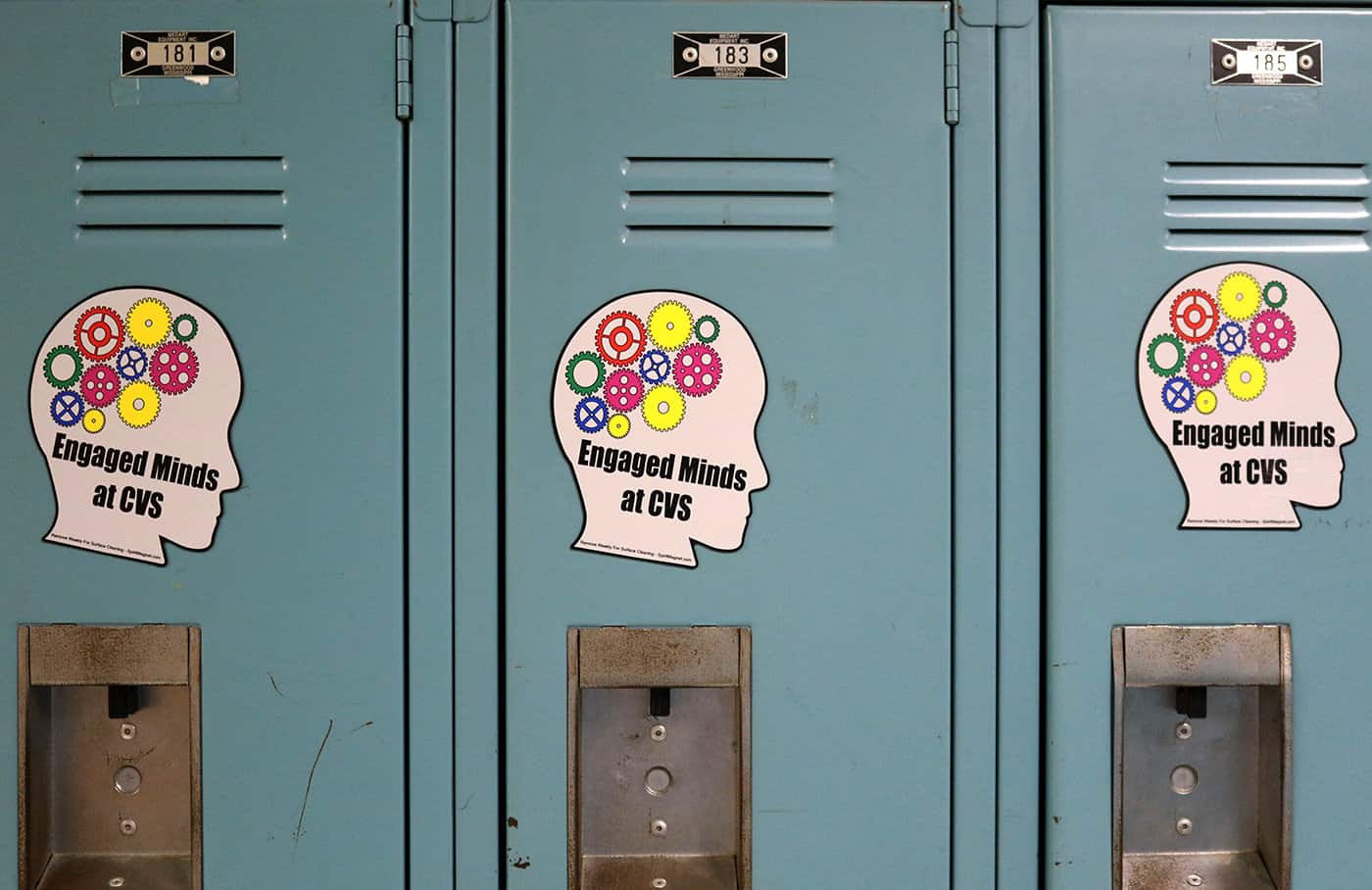
But that doesn’t mean it’s an easy job, and that’s where programs like the NC NTSP help beginning teachers weather the first few years of acclimating to the classroom.
“Is it difficult being a teacher? Absolutely.” says Vamvakias.
What keeps him up at night? At first, it was the usual day-to-day stressors of the profession: grading papers, curriculum planning, End-of-Grade tests, on and on.
But ultimately the thing that worries him most is how to best connect with students in his classroom.
“How do I get through to them and help them learn?” says Vamvakias. “What am I doing wrong? Because it’s never their fault, right? It’s never a student’s fault that they’re not learning. It’s always my fault. What am I not doing to reach that kid?”
“It’s my job to help that kid to see that this matters to that kid. This science matters to this kid’s life. That’s what keeps me awake.”
Video: On helping students
https://youtu.be/z5PYpAF9RtA
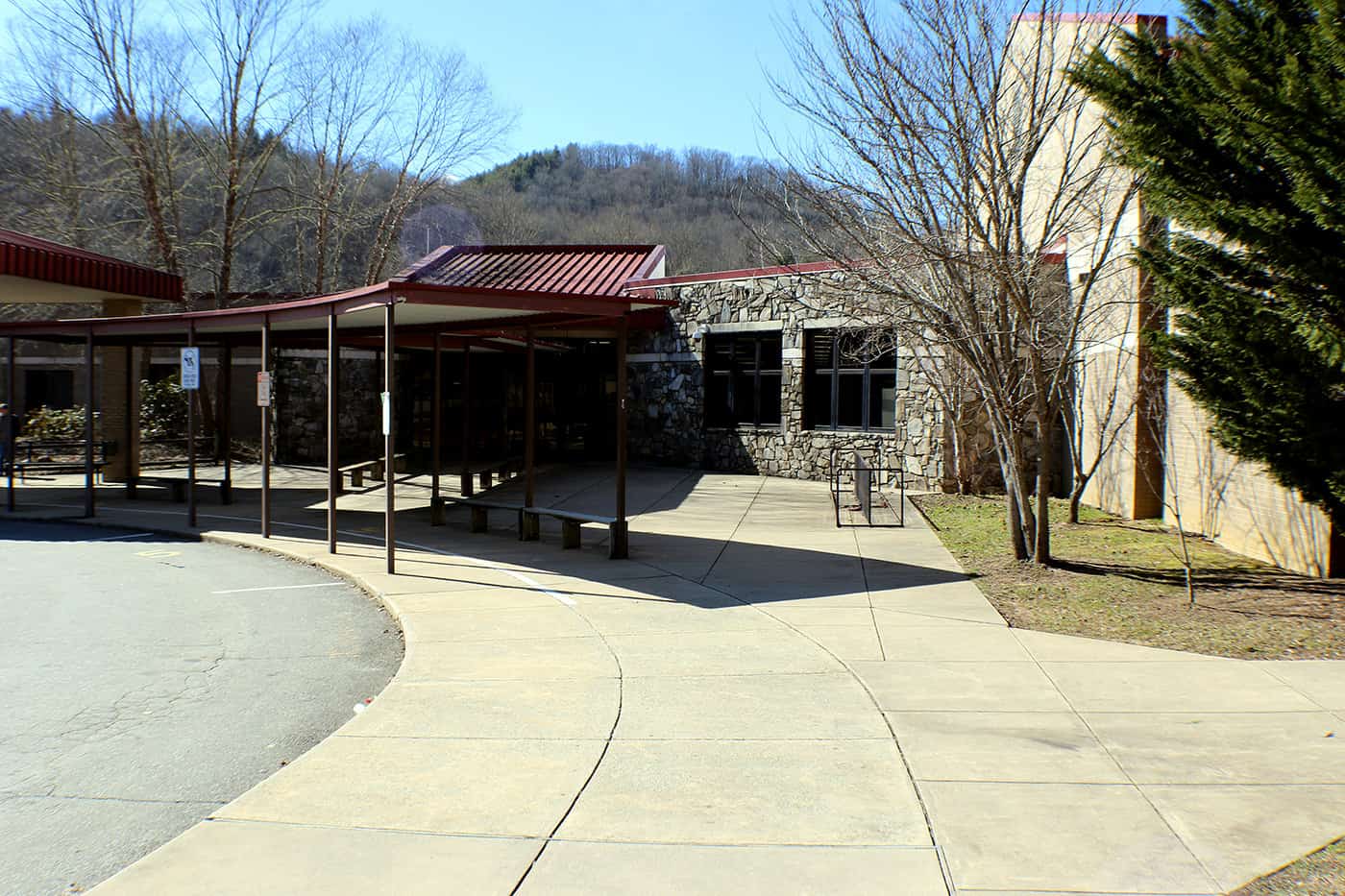
Vamvakias’ pedagogical style is hands-on. He wants his students to do science, not just study it.
He has a lab project with Trout Unlimited that has his students raising trout in the classroom to be released back into the wild. He is working with Western Carolina University professors to have his students collect field data that will be used in a research publication. Another Western Carolina University professor is helping the students do an energy audit of the school. And yet another is helping the students do fieldwork on frogs. He Skypes in experts from around the world to interact with his students.
“My goal is to build bridges between my kids and Western Carolina University because a lot of these kids – many of them – come from generational poverty; it’s just a fact.” says Vamvakias. “A university is something that is not familiar to them. I want to change that.”
Video: The reality of a student’s life outside the classroom.
https://youtu.be/vYRfEW-KDAU
For Vamvakias, there have been many high points. Particularly with the students who lag behind their peers, who are below grade level in reading comprehension and writing skills. The moments when those students show up in class with detailed study notes or a well-written assignment, those are high points.
Video: This is why I do it.
https://youtu.be/C9J4VNDUB_Q
And when that happens, he takes the time to pick up the phone and share those moments with the students’ parents, parents who may typically get calls from the school for all the wrong reasons.
“I’ve had parents start crying,” says Vamvakias. “They say, ‘You are the first teacher to call and say good things about my kid,’ and I say, ‘I only have good things to say about your kid.’”
“And it’s true,” Vamvakias continues. “I’ve seen these kids do – over and over – amazing things.”
“There have been so many moments where I email my principal and say, ‘You will not believe this, this is amazing…'”
“My kids frequently do things that almost bring tears to my eyes.” Vamvakias says and then pauses, and with a slight grin adds, “and maybe sometimes do.”
Great Teachers and School Leaders Matter Series
Part 1: Introduction
Part 2: Katie B. Morris
Part 3: Yolanda Black
Part 4: Jeff Vamvakias
Part 5: New Teacher Support Program
Part 6: Diana B. Lys
Part 7: Steve Lassiter
Part 8: Chase Schultz
